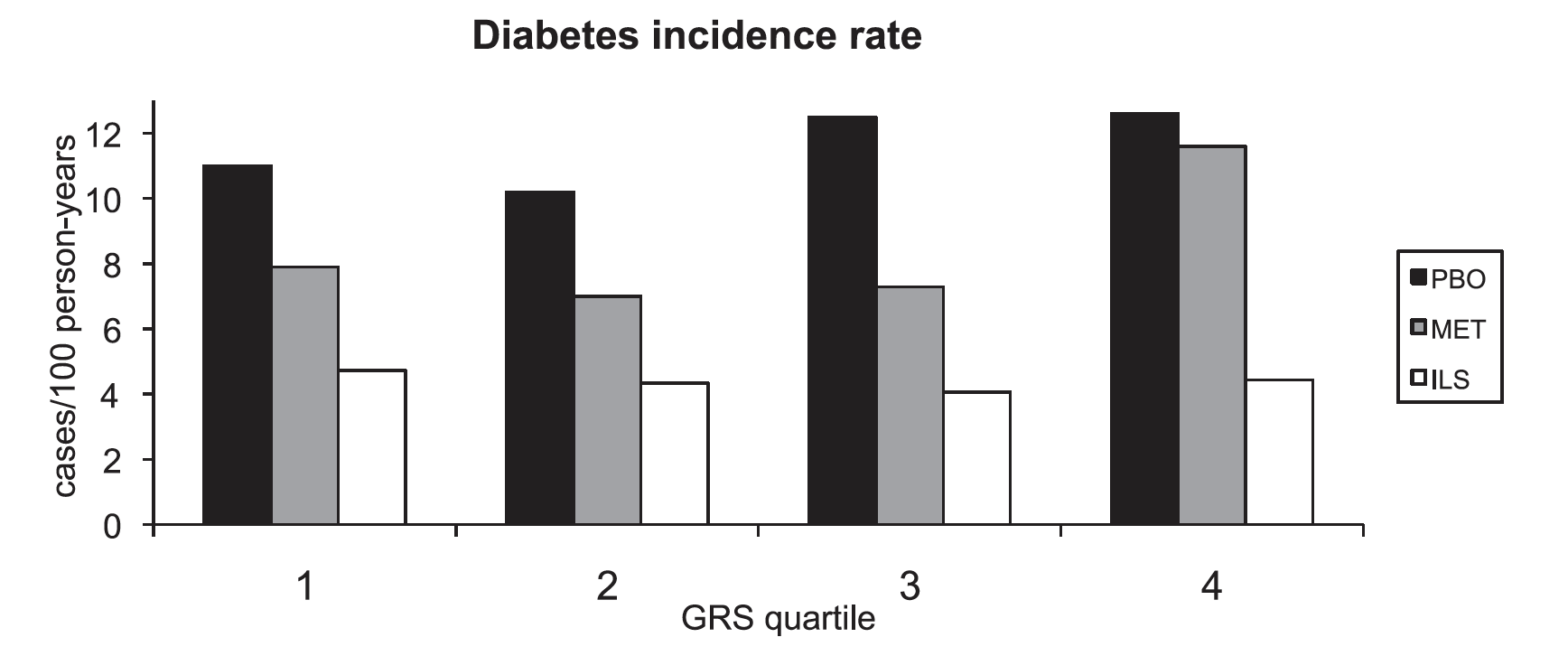
Updated genetic score based on 34 confirmed type 2 diabetes loci is associated with diabetes incidence and regression to normoglycemia in the Diabetes Prevention Program
OBJECTIVE: Over 30 loci have been associated with risk of type 2 diabetes at genome-wide statistical significance. Genetic risk scores (GRSs) developed from these loci predict diabetes in the general population. We tested if a GRS based on an updated list of 34 type 2 diabetes-associated loci predicted progression to diabetes or regression toward normal …
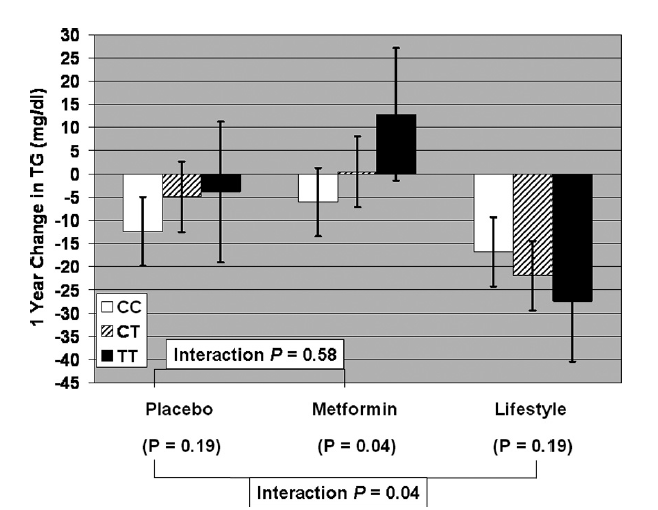
Triglyceride response to an intensive lifestyle intervention is enhanced in carriers of the GCKR Pro446Leu polymorphism
CONTEXT: Glucokinase regulatory protein (GCKR) regulates the trafficking and enzymatic activity of hepatic glucokinase, the rate-limiting enzyme in glycogen synthesis and glycolysis. The intronic single-nucleotide polymorphism (SNP) rs780094 (intron 16) and the missense SNP rs1260326 (P446L) in the GCKR gene are strongly associated with increased circulating triglyceride and C-reactive protein levels and, paradoxically, reductions in …
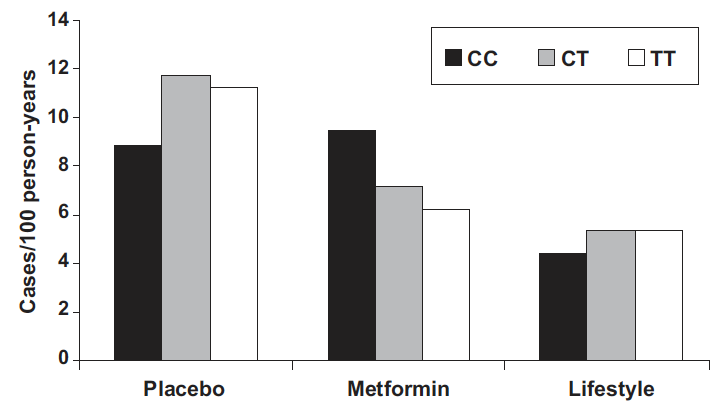
Common variants in 40 genes assessed for diabetes incidence and response to metformin and lifestyle interventions in the Diabetes Prevention Program
OBJECTIVE: Genome-wide association studies have begun to elucidate the genetic architecture of type 2 diabetes. We examined whether single nucleotide polymorphisms (SNPs) identified through targeted complementary approaches affect diabetes incidence in the at-risk population of the Diabetes Prevention Program (DPP) and whether they influence a response to preventive interventions. RESEARCH DESIGN AND METHODS: We selected …

New genetic loci implicated in fasting glucose homeostasis and their impact on type 2 diabetes risk
Levels of circulating glucose are tightly regulated. To identify new loci influencing glycemic traits, we performed meta-analyses of 21 genome-wide association studies informative for fasting glucose, fasting insulin and indices of beta-cell function (HOMA-B) and insulin resistance (HOMA-IR) in up to 46,186 nondiabetic participants. Follow-up of 25 loci in up to 76,558 additional subjects identified …
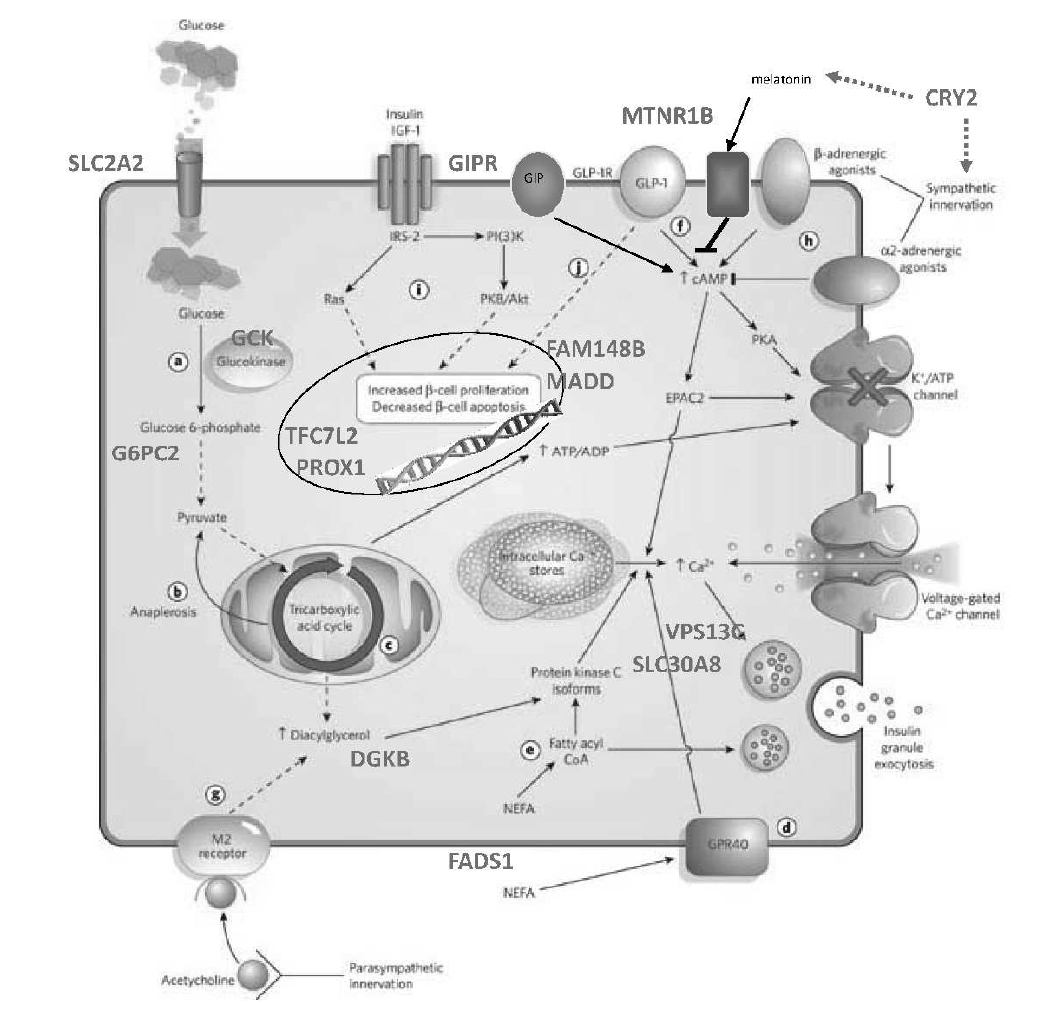
Detailed physiologic characterization reveals diverse mechanisms for novel genetic loci regulating glucose and insulin metabolism in humans
OBJECTIVE: Recent genome-wide association studies have revealed loci associated with glucose and insulin-related traits. We aimed to characterize 19 such loci using detailed measures of insulin processing, secretion, and sensitivity to help elucidate their role in regulation of glucose control, insulin secretion and/or action. RESEARCH DESIGN AND METHODS: We investigated associations of loci identified by …
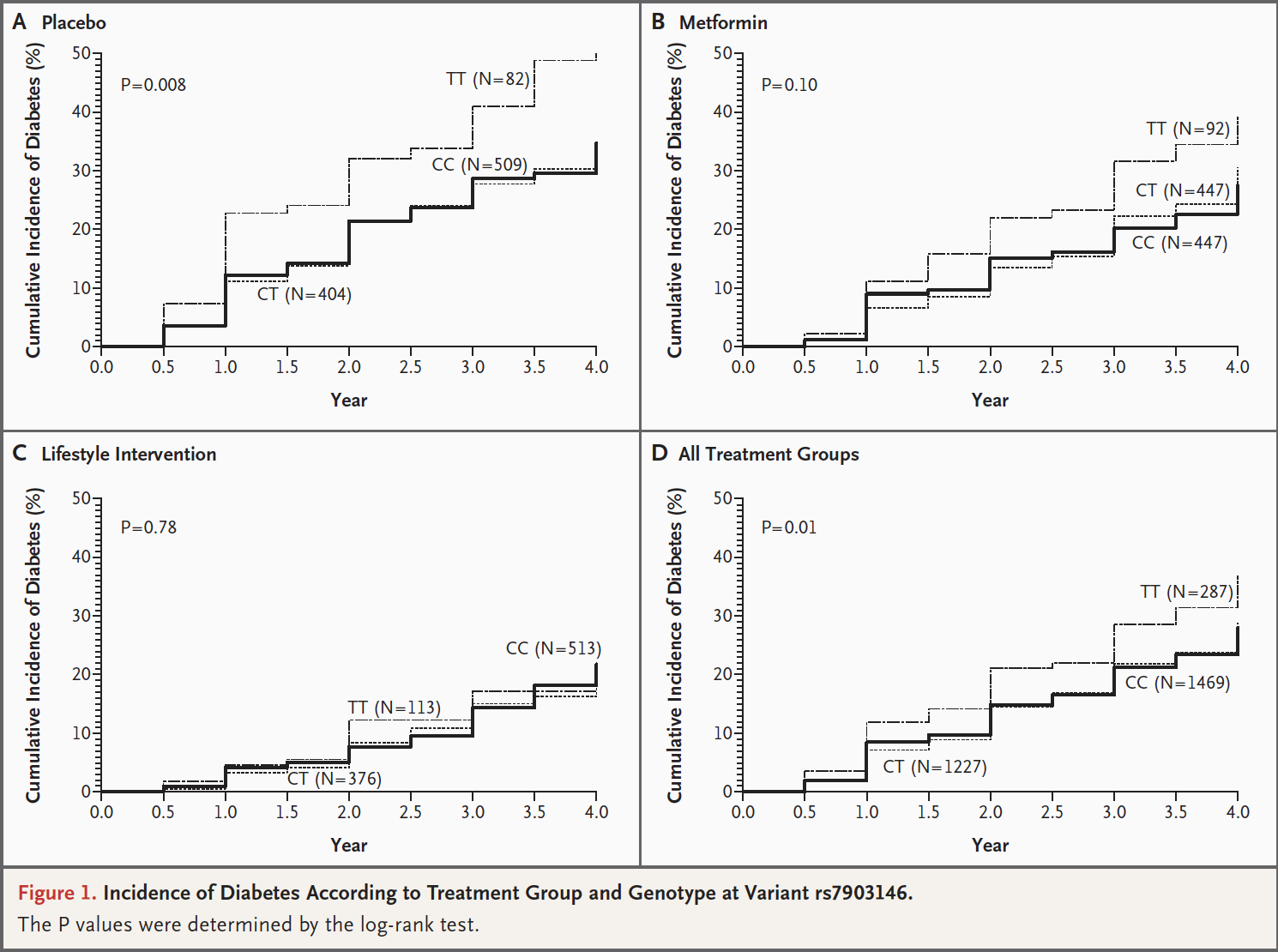
TCF7L2 polymorphisms and progression to diabetes in the Diabetes Prevention Program
BACKGROUND: Common polymorphisms of the transcription factor 7-like 2 gene (TCF7L2) have recently been associated with type 2 diabetes. We examined whether the two most strongly associated variants (rs12255372 and rs7903146) predict the progression to diabetes in persons with impaired glucose tolerance who were enrolled in the Diabetes Prevention Program, in which lifestyle intervention or …
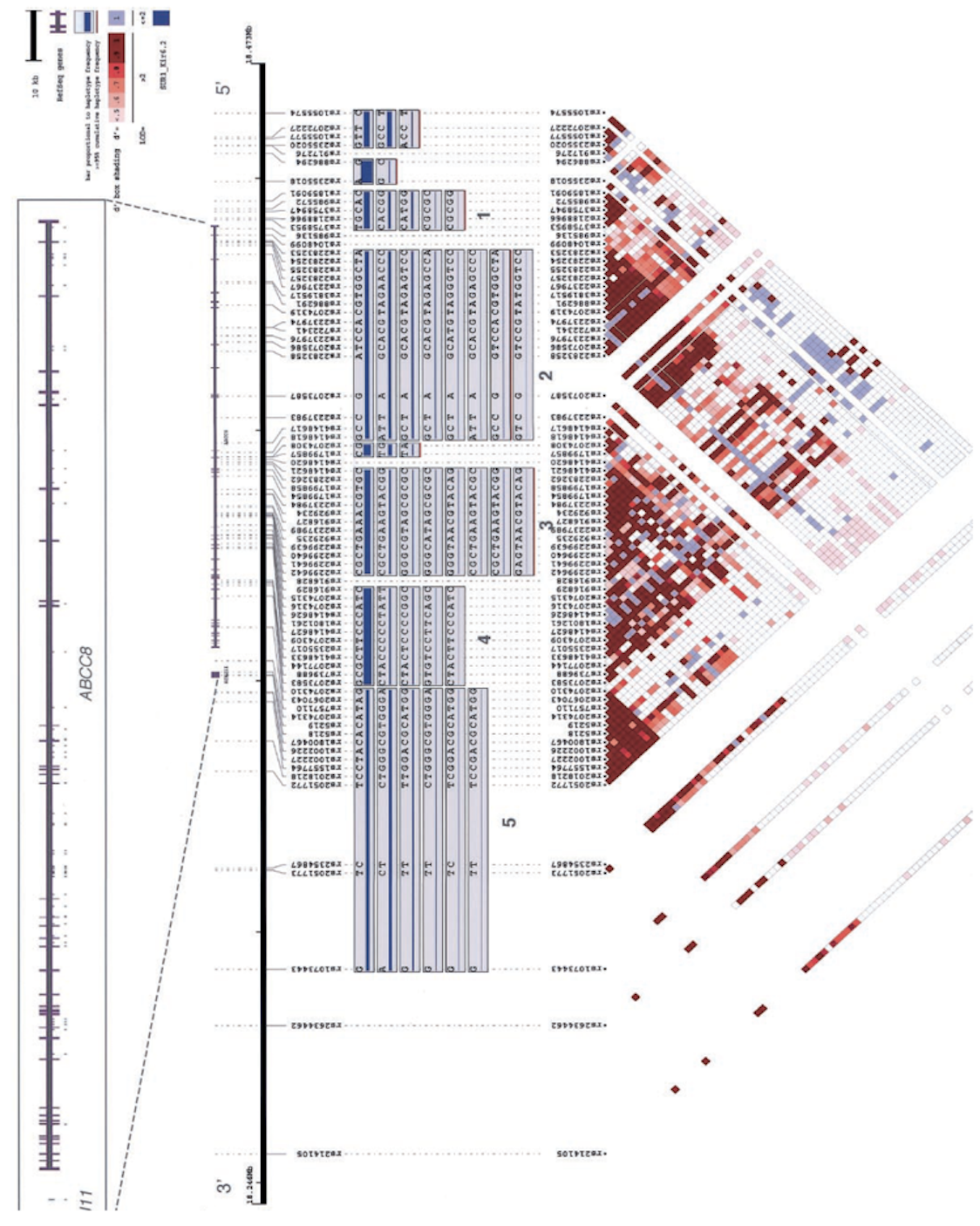
Haplotype structure and genotype-phenotype correlations of the sulfonylurea receptor (SUR1) and the islet ATP-sensitive potassium channel (Kir6.2) gene region
The genes for the sulfonylurea receptor (SUR1; encoded by ABCC8) and its associated islet ATP-sensitive potassium channel (Kir6.2; encoded by KCNJ11) are adjacent to one another on human chromosome 11. Multiple studies have reported association of the E23K variant of Kir6.2 with risk of type 2 diabetes. Whether and how E23K itself-or other variant(s) in …



